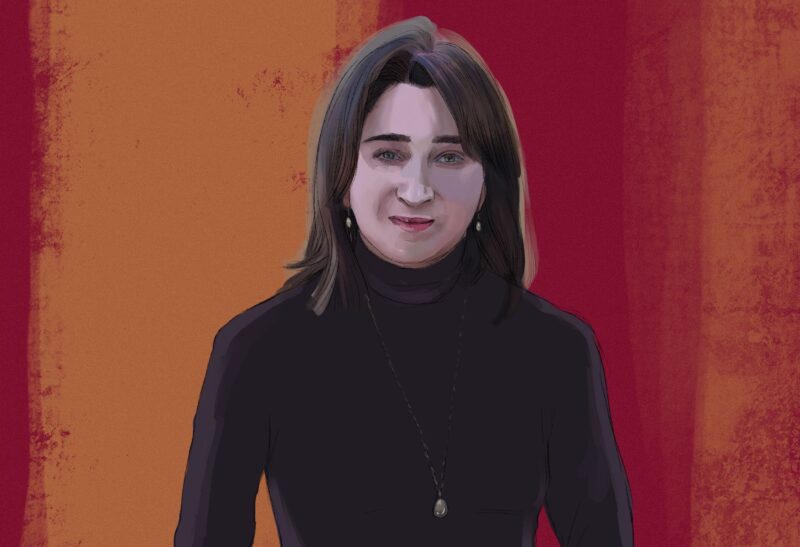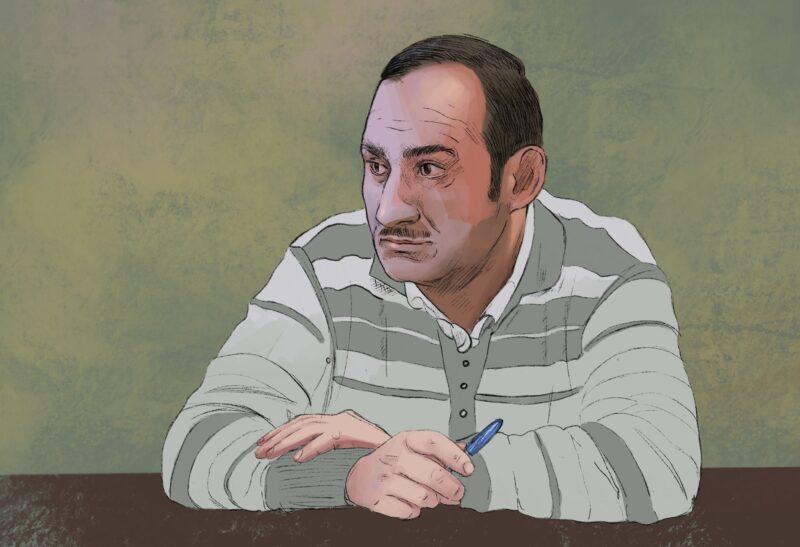

Despite the fact that Azerbaijan is not related to any ethnic group name, ethnic nationalism carried out under the name of “Azerbaijanism” is perhaps yet another unprecedented action for the world. Our intellectuals have written and spoken about it for many years saying that as the Constitution reads, every citizen of Azerbaijan living on the territory of Azerbaijan is Azerbaijani regardless of their ethnic group (i.e. Azerbaijani-Armenians are as Azerbaijani, as Talish, Lazgi and Turks), while the government’s propaganda machine constantly draws people with “ethnic nationalism”:
- Grandmaster Vugar Hashimov was removed from the national team arguably because the honorary president of the club that he played for was Garry Kimovich Kasparov (whose mother is Armenian).
- Hafiz Hajiyev, presidential candidate insulted another candidate by calling him “Armenian digha” (man).
- Youth leader and Harvard University alum Bakhtiyar Hajiyev condemned Ramin Hajili, President of the European Movement, for dancing with Armenian girls.
- Azerbaijani government and opposition criticized Emin Milli for giving interview to Agos, an Armenian newspaper in Turkey.
- Akram Aylisli was slammed on state television for having an Armenian character in his “Stone Dreams” novel.
- Mubariz Mansimov, well-known Azerbaijani businessman, proudly mentioned that he would not employ anyone of Armenian descent, and Azerbaijani media, including opposition newspapers published it pompously.
- Member of Sertab Erener’s ensemble, Turkish citizen of Armenian descent, was denied entrance to the country to play in her concert.
- Moreover, state television calls for hatred towards Armenians by airing terrifying videos about Khojali every day.
After all the abovementioned events, published in media or not, Ilham Aliyev claimed that we would show all kinds of tolerance to the Karabakh Armenians, and clever opposition members stated that there is no anti-Armenian phobia in the country.
Beginning of Ethnic Nationalism
“In order to become an independent state, we must fight against separatist Karabakh Armenians who are supported by the Soviet Union” was the primary idea during the Second Republic period. Unaware of democracy and human rights, founders of the new republic (The Popular Front of Azerbaijan) neither protected the rights of Armenians, who were not separatists and who suffered from the consequences of the ethnic discrimination during the war, nor let any organization that was doing it, into Milli Majlis (the Parliament). Instead, Armenians were expelled from Azerbaijan justified by the fact that Armenia expelled Azerbaijani Turks and we should make “the same mistake.”
During the Aliyev regime, in addition to blaming all failures and problems on Armenians, any person opposing the government was portrayed as working for Armenians. In fact, during the Second Republic and Aliyev regime periods, this ethnic discrimination policy systematically incited the abovementioned “ethnic discrimination” among citizens through creation of images of “enemy” and “hero.”
Image of Enemy
If enemy is defined as “Armenian” in Azerbaijan, then what is this “Armenian” image? “…Christians who want to kill all “Muslims” living in Azerbaijan and establish Great Armenia?” Martin Luther King Jr. said that the main factor behind hate is false information or lack of information. As in all nations, it is not to say that there are no ethnic nationalists, or that people in Armenia don’t dream about “Great Armenia.” But, do you think there are fewer people dreaming about “Great Azerbaijan” and “Great Turan”?
Nevertheless, we should not forget that the number of Armenian intellectuals with democratic and liberal views as a result of their immigration to Europe and USA in the beginning of the 20th century is many times higher than the Azerbaijani ones. The examples of the Azerbaijani Armenian Garry Kasparov’s donations to the families of January 20 victims, and even Agop Martayan (Dilachar), who was the first chairman of the Turkish Language Organization and was the one to propose to give Mustafa Kamal pasha the name of “Ataturk” in the Turkish Parliament, show how wrong are those stereotypes.
Overall, in 21st century the concept of “enemy” is not used like this anymore, neither nations, nor states. Our enemies today can only be concepts like illiteracy, racism, tyranny, authoritarianism and intolerance which should be addressed by state policy. As a result, such characteristics can be pertaining to any nation and ethnic groups. However, there is only one name for presenting one of these characteristics as representing the whole nation or ethnic group and that is illiteracy.
Image of Hero
The regime needs heroes representing its ideology to protect social unity. It is not a very difficult task for a force that controls all media and education system. For example, chief Lt. Ramil Safarov killed an Armenian in his sleep during the course organized by NATO in Budapest and became a hero in the country. Question arises, what is heroic about it? Killing a sleeping person? Or killing an Armenian?
Let’s take another soldier Mubariz Ibrahimov, who decided on his own without any orders to cross the frontline to the Armenian side and to kill Armenian soldiers during ceasefire. Perhaps many may consider it as heroism, but what should be the reaction of state to “disobedience”? First of all, according to Azerbaijani legislation, if survived, soldier would be arrested “for leaving his military regiment without permission.” If military personnel of Turkey, USA or any other developed country participated in such events, would they be considered heroes? If a state starts to promote “disobedience” as heroism, what would be the consequences of it?
These horrifying facts show that if a state wants to develop, it should portray intellectuals supporting and protecting values serving promotion of humanism and citizens fighting for it as examples of heroes. Otherwise, propaganda of “disobedience” and “crime” will not create healthy heroes.
Conclusion
There is no place for ideas or heroes in middle age mentality, or states with governance style of medieval times in the modern world. Civil values spread by globalization, would not let ideas contradicting humanist values live long. Saddam’s Iraq and Khomeini’s Iran are excellent examples of it. Azerbaijan’s path should be the building of a modern state as it is indicated in its flag, and not isolation from the world.



